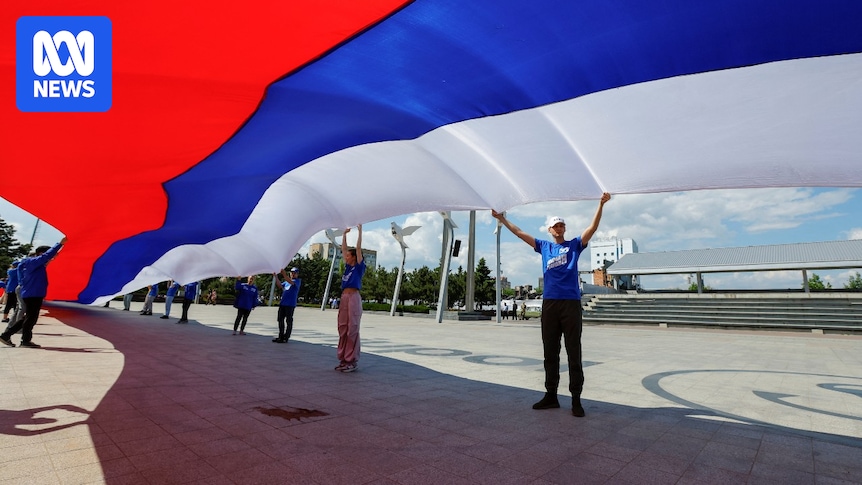Mariupol: Russian Passports or Homelessness? A Stark Choice for Ukraine's Devastated City
The ravaged city of Mariupol stands as a grim symbol of the ongoing war in Ukraine. Beyond the rubble and the lingering trauma, a chilling choice confronts its surviving residents: accept Russian citizenship and potentially access limited resources, or remain stateless and face homelessness amidst the devastation. This forced decision highlights the brutal realities of occupation and the Kremlin's efforts to annex Ukrainian territory through coercive means.
A City Reduced to Ashes: The Human Cost
Mariupol's destruction is almost beyond comprehension. Months of relentless bombardment left the city a wasteland, its infrastructure shattered, its population decimated. The scale of the humanitarian crisis is immense, with thousands still missing, presumed dead, and countless others displaced. International organizations struggle to provide adequate aid amidst ongoing security concerns and access limitations.
The "Passport or Nothing" Dilemma
The Russian occupation authorities are leveraging this desperate situation to push for the forced assimilation of Mariupol's remaining population. Reports suggest that access to basic necessities like food, shelter, and medical care is increasingly conditional on obtaining a Russian passport. This effectively creates a "passport or nothing" scenario, forcing residents to choose between survival and maintaining their Ukrainian identity.
- Limited Resources: Access to essential services like healthcare and social welfare programs is severely restricted for those without Russian citizenship.
- Economic Isolation: The Ukrainian economy is largely inaccessible to those who accept Russian passports, leading to further economic hardship.
- Loss of Identity: The forced adoption of Russian citizenship represents a profound loss of Ukrainian identity and national belonging.
The International Response: Condemnation and Aid Efforts
The international community widely condemns Russia's actions in Mariupol as a violation of international humanitarian law and a blatant attempt at forced assimilation. Organizations like the United Nations and the International Red Cross are working tirelessly to provide humanitarian aid, but their efforts are hampered by the ongoing conflict and the restrictive actions of the occupying forces.
Challenges in Delivering Aid:
- Access Restrictions: The Russian military often restricts access to aid organizations, hindering the delivery of vital supplies.
- Security Concerns: The volatile security situation makes aid delivery exceptionally dangerous for humanitarian workers.
- Scale of Need: The sheer scale of destruction and the immense needs of the surviving population overwhelm available resources.
The Future of Mariupol: Reconstruction and Reintegration
The long-term future of Mariupol remains uncertain. Rebuilding the city will require a massive international effort, but this process will be significantly hampered as long as the Russian occupation persists. The question of how and when the city can be reintegrated into Ukraine remains a critical challenge for the Ukrainian government and its international partners.
Challenges in Rebuilding and Reintegration:
- De-Occupation: The first crucial step is the liberation of Mariupol from Russian occupation.
- Infrastructure Reconstruction: Rebuilding the city's infrastructure will require significant financial and logistical resources.
- Reuniting Families: Locating and reuniting displaced families is a vital part of the recovery process.
The situation in Mariupol serves as a stark reminder of the devastating consequences of war and the importance of upholding international humanitarian law. The forced choice between Russian passports and homelessness underscores the urgency of international action to address the humanitarian crisis and support the people of Ukraine in their fight for freedom and self-determination. For more information on the ongoing crisis in Ukraine, please visit . Learn how you can help by donating to reputable aid organizations working on the ground.

